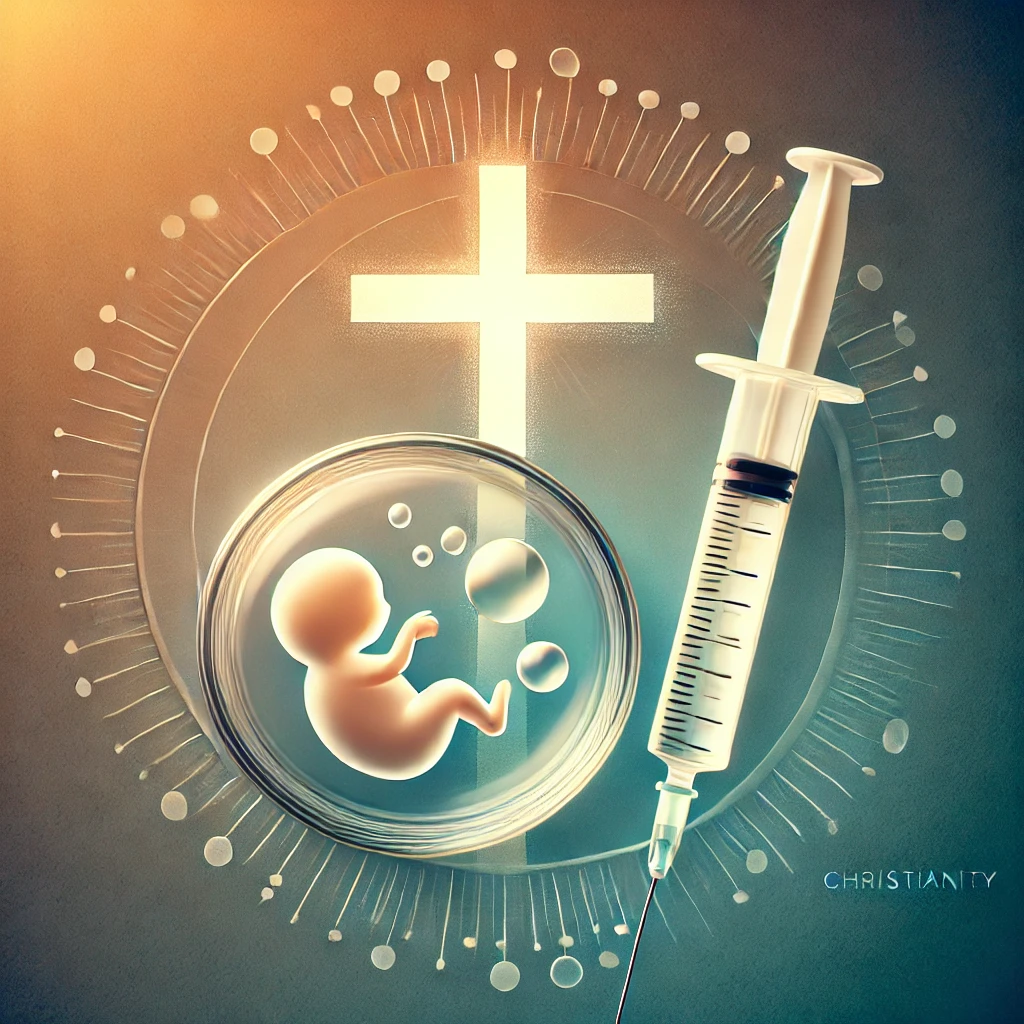What Does Christianity Say About IVF? Balancing Faith and Fertility Treatments


Christian Perspectives on IVF
| Denomination | View on IVF |
|---|---|
| Catholicism | Generally opposes IVF due to ethical concerns about embryo destruction and separation from natural conception. |
| Protestantism | Varies by denomination; many support IVF if it respects the sanctity of life and avoids embryo destruction. |
| Orthodox Christianity | Often cautious, similar to Catholicism, emphasizing natural conception and ethical embryo handling. |
Infertility can be a challenging journey for Christian couples who often turn to their faith for guidance. While many Christians seek fertility treatments like in vitro fertilization (IVF), opinions within Christianity vary. This article explores how different Christian denominations view IVF, highlighting the ethical considerations and spiritual dilemmas involved in balancing faith and the desire for children.
Catholic Views on IVF
The Catholic Church strongly opposes IVF, considering it inconsistent with the principles of natural conception and the sanctity of life. Key concerns include:
1. Embryo Destruction
Catholic doctrine emphasizes the inherent dignity of all human life from conception. The Church opposes the creation of surplus embryos during IVF, as unused embryos may be discarded, frozen, or used for research, which is considered morally unacceptable.
2. Separation from Natural Conception
The Church teaches that conception should occur through the marital act, emphasizing the unity and procreative aspects of marriage. IVF involves conception outside the body, which the Church views as contrary to God’s design.
3. Alternative Solutions
The Catholic Church encourages couples to explore moral alternatives, such as:
- Natural Procreative Technology (NaPro): A treatment aligned with Catholic ethics, focusing on identifying and addressing underlying fertility issues naturally.
- Adoption: Seen as a compassionate option that fulfills the desire for parenthood.
Protestant Views on IVF
Protestant denominations exhibit a range of perspectives on IVF, with many taking a more permissive stance than Catholicism. Common themes include:
1. Support with Ethical Considerations
Many Protestant groups support IVF when it:
- Avoids creating and discarding excess embryos.
- Respects the sanctity of life by transferring all embryos created during the process.
- Is used within the context of marriage.
2. Denominational Differences
- Evangelical Churches: Often align with conservative views, emphasizing ethical embryo handling.
- Mainline Protestant Churches: Tend to be more accepting of IVF, focusing on the couple’s intent and the potential for family creation.
3. Guidance from Scripture
Protestant support often stems from the belief that God grants humans the wisdom and tools to address infertility through modern medicine, as long as practices align with biblical principles.
Orthodox Christianity and IVF
The Orthodox Church generally approaches IVF cautiously, with concerns similar to those of Catholicism. However, Orthodox leaders may permit IVF under certain circumstances:
1. Conditions for Approval
The Orthodox Church may accept IVF if:
- All embryos are transferred or preserved respectfully.
- The procedure occurs within the bounds of a sacramental marriage.
- No third-party involvement (e.g., donor eggs, sperm, or surrogacy) is involved.
2. Focus on Natural Conception
Orthodox teachings emphasize the spiritual significance of natural conception, encouraging couples to seek God’s guidance and trust in His plan.
Shared Ethical Concerns Across Christian Denominations
- Embryo Creation and Disposition Most Christian traditions raise ethical questions about the fate of unused embryos. Couples are encouraged to consider how surplus embryos align with their faith.
- Third-Party Involvement Using donor eggs, sperm, or surrogacy is often discouraged, as it introduces external contributors to a process meant to remain within the marital bond.
- Cost and Accessibility Some Christians question the high costs of IVF, emphasizing the importance of equitable access and prioritizing compassionate alternatives like adoption.
Finding Balance: Faith and Fertility
Christian couples navigating infertility often face a delicate balance between faith and the desire for children. Steps to align faith with fertility treatments include:
- Consult Religious Leaders Seek guidance from pastors, priests, or spiritual advisors to understand how IVF aligns with your denomination’s teachings.
- Consider Ethical Alternatives Explore fertility treatments that minimize ethical concerns, such as natural fertility restoration methods or limited-embryo IVF.
- Pray for Guidance Prayer can provide comfort and clarity, helping couples make decisions that reflect their faith and values.
- Join Faith-Based Support Groups Many churches offer support groups for couples facing infertility, providing a community to share experiences and spiritual encouragement.
Conclusion
Christian views on IVF vary widely, reflecting the diversity of beliefs within the faith. While Catholicism and Orthodox Christianity are more restrictive, many Protestant denominations offer cautious support, focusing on ethical considerations. For Christian couples, seeking spiritual guidance, exploring alternatives, and maintaining a strong connection to their faith can help them navigate this deeply personal journey.
Contact us if you have questions about how faith intersects with fertility treatments or need resources for making informed, ethical decisions. We’re here to support you.
FAQs
-
Does the Catholic Church allow IVF?
- No, the Catholic Church opposes IVF due to concerns about embryo destruction and separation from natural conception.
-
Are there Christian-friendly fertility treatments?
- Yes, options like Natural Procreative Technology (NaPro) align with Catholic and Christian ethics.
-
Do Protestants support IVF?
- Many Protestant denominations support IVF with ethical considerations, such as avoiding embryo destruction and third-party involvement.
-
What does Orthodox Christianity say about IVF?
- The Orthodox Church may permit IVF under strict conditions, emphasizing natural conception and ethical embryo handling.
-
Is adoption encouraged in Christianity as an alternative to IVF?
- Yes, adoption is widely supported across Christian denominations as a compassionate way to build a family.



